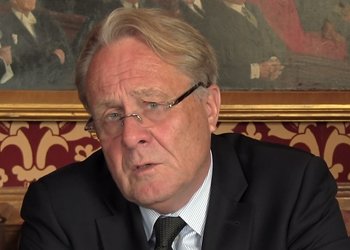An investment of €1 trillion (£846bn) is needed in the European Union’s energy network over the coming decade to avoid a crisis.
That’s the conclusion of an eight-month inquiry by the House of Lords into the EU power sector. The report said investors were being held back due to a lack of clear policy from Member States, including the UK, on how to deliver secure, affordable low carbon energy.
Lord Carter of Coles (pictured), Chairman of the EU Sub-Committee for Agriculture, Fisheries, Environment and Energy said: “The value of energy companies has slumped since 2008, the public purse is severely constrained but more than enough money is around in the investment community. This should be a great time to invest in long-term assets, such as energy, but clear policy is needed in order to release it. No country is an energy island, so EU policy is particularly important. We need leadership and direction from the EU and its Member States in developing and agreeing an energy policy framework through to 2030.
He said the EU’s Emissions Trading System (ETS) also needs greater support: “The ETS has failed but it is not dead. It needs to include a minimum price for carbon, providing governments and investors with the confidence to support innovation through investment. Second, and contrary to UK Government policy, a target for the proportion of energy to be delivered through renewable energy until 2030 is required.”
Other recommendations from the Committee include a regulatory approach to boost carbon capture and storage, developing a structure for the exploitation of shale gas and electricity interconnections between Member States.
DECC said it agrees that huge investment for low carbon energy must be central to both the UK and EU’s energy policy.
A spokesperson added: “In Europe we are strongly advocating agreement to backloading and structural change to the EU ETS so that it can remain the cornerstone of the EU’s climate and energy policy and provide the incentive necessary for such investment.”





